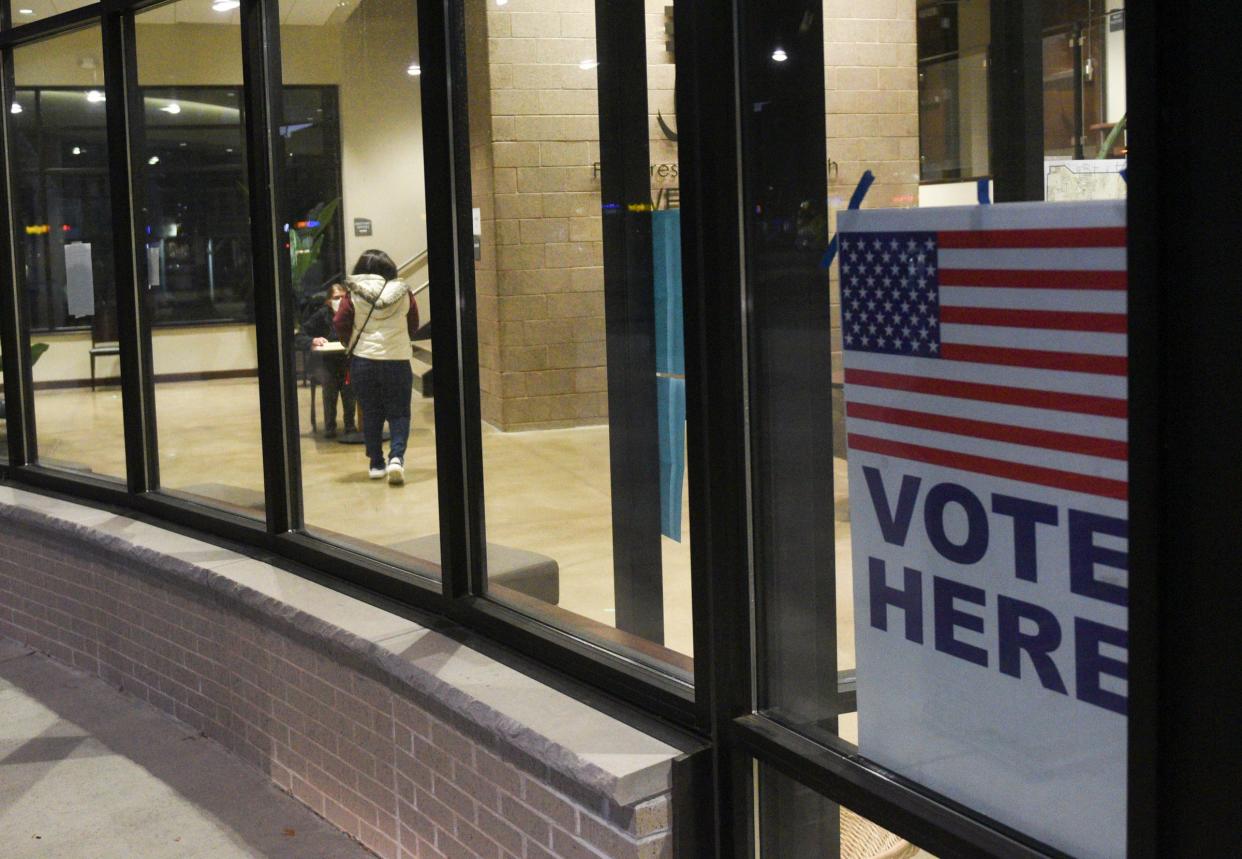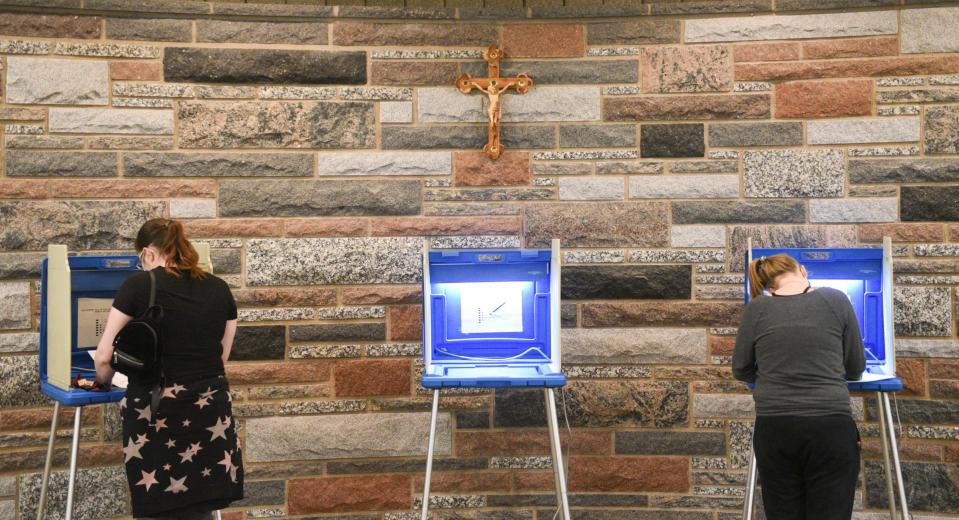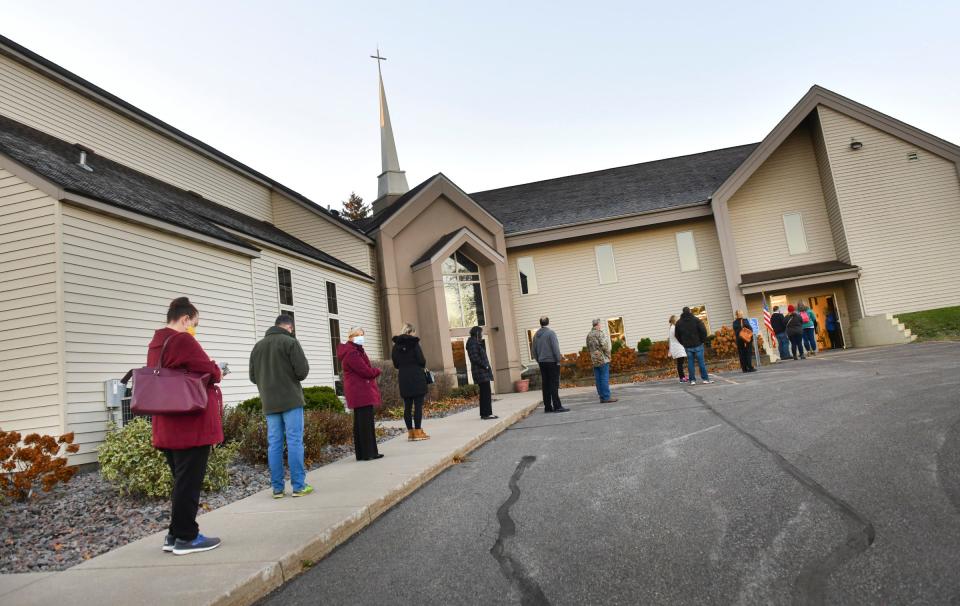All the election legislation that passed this year in Minnesota & what it means for 2024

The 2023 legislative session was a busy one for voting rights and access. The Democratic-led Statehouse passed major bills resulting in a wave of changes for the 2024 general election. From investing in disability access to protecting voters from intimidation, DFL legislators used their slim majority to push legislation aimed at preparing Minnesotans for next year.
Here’s a few notable changes:
If you are a convicted felon serving your sentence post-incarceration, you can now vote
In May, Minnesota joined a growing number of states to pass a law allowing felons to vote, even if they are still on parole or supervised release. The Restore the Vote bill marks the state’s largest expansion of voting rights in 50 years following the adoption of same-day registration.
Previous Minnesota law stated that a person convicted of a felony offense lost their right to vote until they completed the entirety of their sentence, including time served in the community.
A study conducted by the Sentencing Project found that over 84 percent, or 45,000 felons, were completing their sentences outside of prison, and therefore were unable to vote.
Nicole Porter, the senior director of advocacy at the Sentencing Project, has worked to restore voting rights across the nation since 2009.
“The criminal legal system should not mediate democracy,” she told USA Today.
The law has faced legal pushback since its signing by Governor Tim Walz (DFL) in June. A Mille Lacs County District judge declared it unconstitutional and prohibited defendants in felony cases from voting. The Minnesota Voter’s Alliance also sued. State DFL officials intervened and reassured Minnesotans the statute stands, however, Porter still fears a chilling effect resulting from legal opposition and confusion.
“Very clear, direct and comprehensive information needs to be shared with the new voters,” she said. "And a culture of voting and engagement in the franchise really needs to be cultivated and supported.”
Restore the Vote Minnesota, a grassroots coalition of over 70 community organizations led the efforts, many of which guided by previously disenfranchised felons.
A study from the Prison Policy Initiative found that Minnesota incarcerates more of its citizens than nearly every other democratic nation, just behind the United States at a rate of 342 per 100,000.
Of the nearly 18,000 Minnesotans incarcerated in various facilities, Black and Native American citizens disproportionately make up the majority of those behind bars, according to the 2021 report.

More voter access, more voter protections, more election funding
Co-author of the Democracy for the People Act Senator Liz Boldon told USA Today that addressing obstacles to voting is on the minds of all Minnesotans.
“Protecting and expanding our democracy is really foundational to all of the other work that we wanted to do and that we did do in this session.”
Some key provisions of the law include:
Automatic voter registration — Have you been to the DMV recently? If you have, the first question you might hear is ‘Are you registered to vote?.’ No, you are not automatically registered. However, it is automatic that certain state agencies will ask if you are and if you would like to be.
Pre-registration for 16 and 17-year-olds — Teenagers are now able to register to vote as young as 16-years-old. Once registered, their status is pending until they reach their 18th birthday when they become eligible and are all ready to cast their ballot.
Criminalizing voter intimidation — Criminal and civil penalties are now in place for anyone that intimidates people at the polls or distribute misleading and or false information.
Absentee ballot access — Voters can opt to receive absentee ballots automatically every election, adding themselves to an absentee voter list. Previously, voters had to request a ballot every election.
Providing alternative language materials — Polling places will now be required to provide alternative language materials to communities that have three percent or more of their population speaking “less than very well” English. According to a 2021 Migration Policy Institute study, that accounts for roughly 70,000 Minnesotans of eligible voting age. Other than English, the top three languages spoken are Spanish, Somali, and Hmong.

In May, a separate omnibus bill passed that expanded on voter access and funding:
The state's first continuous stream of state funding for elections — An initial $500,000 appropriated to local city and county election administrations to fund disability access to the polls in addition to an annual appropriation of $1.25 million per year.
Absence from work — Employees are now allowed to leave work during the 46-day absentee voter period, including Election Day, to cast their ballot.
Possible alternative to the electoral college: Joining the National Popular Vote Interstate Compact —Legislators voted to join the National Popular Vote Interstate Compact declaring Minnesota’s 10 electoral points to a system that would replace the electoral college with a national popular vote, if passed by enough states. Minnesota is now one of 16 states, along with the District of Columbia, to pledge their support.
As part of a separate $2.3 billion education bill, beginning Fall 2024, Minnesota high school students will be required to complete a civics course in order to graduate.
Senator Boldon said of the new provision, “Having people get engaged and involved early, it puts them on a path to be a lifelong voter and to be engaged for the rest of their lives."
A previous statute, effective as of 2017, mandated Minnesota public high schools to administer a civics test, evaluating them on questions from the United States Customs and Immigration Services exam.
— Sam Woodward is the Minnesota Elections Reporting Fellow for USA Today. Contact her at swoodward@gannett.com
This article originally appeared on Aberdeen News: What laws passed in Minnesota in 2023 & how they affect 2024 election

